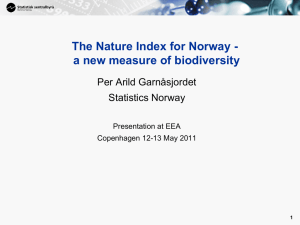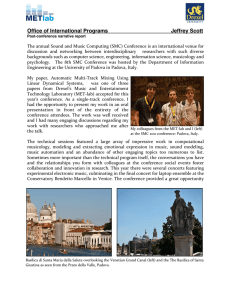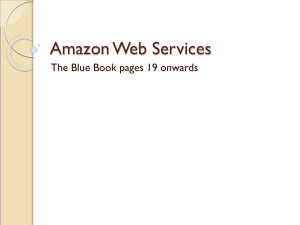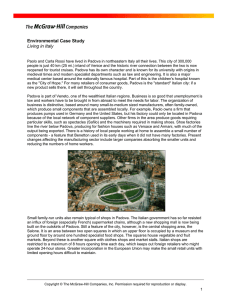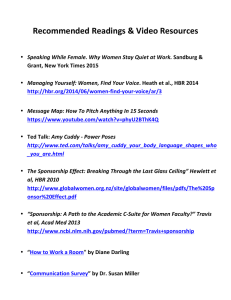NON CONVENTIONAL FOOD AND MEDICINALS FROM AMAZON LOCAL AND WORLD SUSTAINABILITY
advertisement
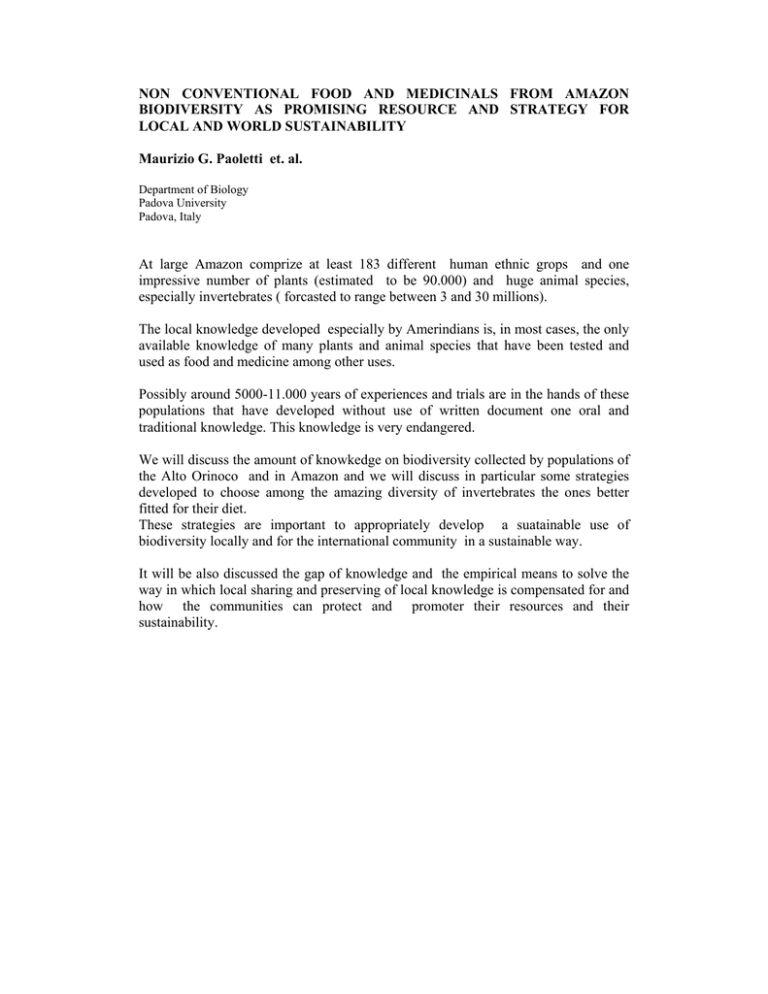
NON CONVENTIONAL FOOD AND MEDICINALS FROM AMAZON BIODIVERSITY AS PROMISING RESOURCE AND STRATEGY FOR LOCAL AND WORLD SUSTAINABILITY Maurizio G. Paoletti et. al. Department of Biology Padova University Padova, Italy At large Amazon comprize at least 183 different human ethnic grops and one impressive number of plants (estimated to be 90.000) and huge animal species, especially invertebrates ( forcasted to range between 3 and 30 millions). The local knowledge developed especially by Amerindians is, in most cases, the only available knowledge of many plants and animal species that have been tested and used as food and medicine among other uses. Possibly around 5000-11.000 years of experiences and trials are in the hands of these populations that have developed without use of written document one oral and traditional knowledge. This knowledge is very endangered. We will discuss the amount of knowkedge on biodiversity collected by populations of the Alto Orinoco and in Amazon and we will discuss in particular some strategies developed to choose among the amazing diversity of invertebrates the ones better fitted for their diet. These strategies are important to appropriately develop a suatainable use of biodiversity locally and for the international community in a sustainable way. It will be also discussed the gap of knowledge and the empirical means to solve the way in which local sharing and preserving of local knowledge is compensated for and how the communities can protect and promoter their resources and their sustainability.
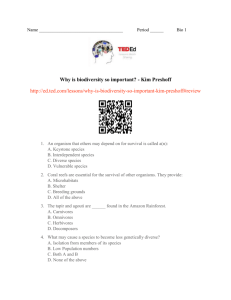
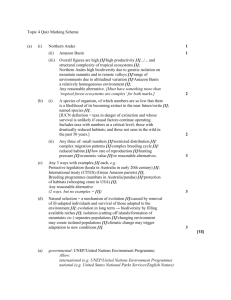

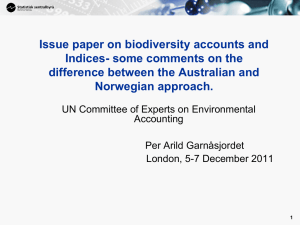
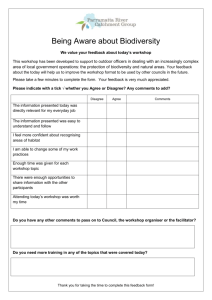
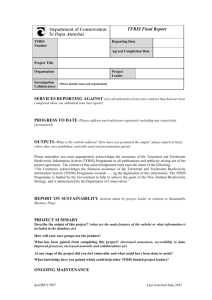
![Marco Paiola abstact and bio [DOCX 12.67KB]](http://s2.studylib.net/store/data/015015008_1-e1e04d06e4ce52318939a516afa289f7-300x300.png)
